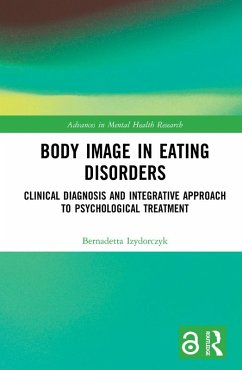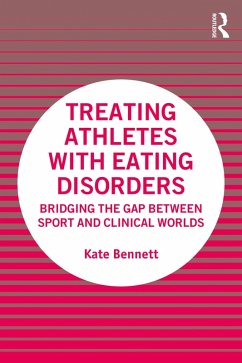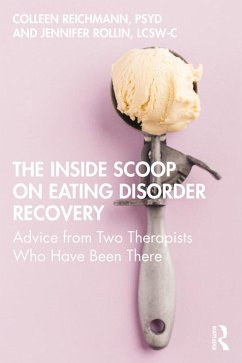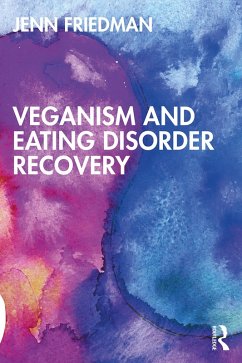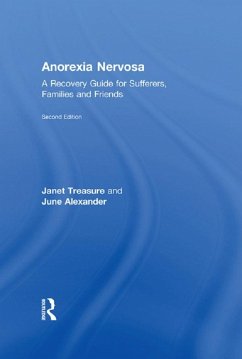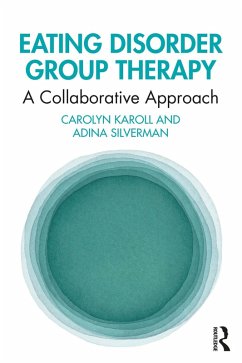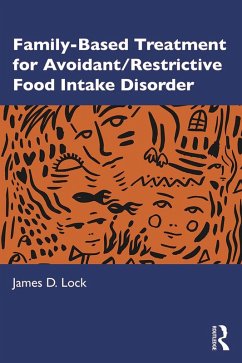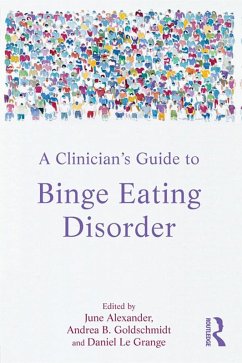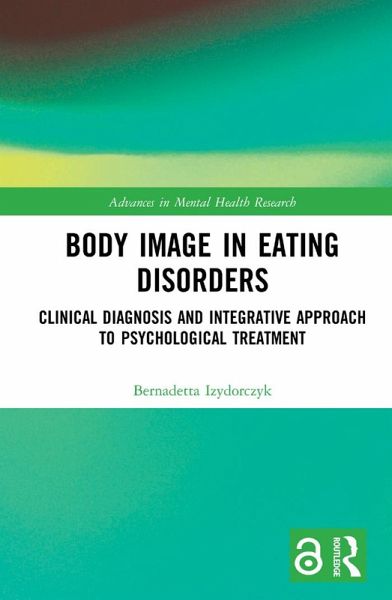
Body Image in Eating Disorders (eBook, PDF)
Clinical Diagnosis and Integrative Approach to Psychological Treatment
Versandkostenfrei!
Sofort per Download lieferbar
0,00 €
inkl. MwSt.
Weitere Ausgaben:

PAYBACK Punkte
0 °P sammeln!
Body Image in Eating Disorders explores issues relating to the prevention, clinical diagnosis, and psychological treatment of distortions of body image in eating disorders. It presents a multifactorial model of indicators for diagnosis and treatment, considering psychological, sociocultural, and family indicators.Based on original empirical research with women and girls suffering from eating disorders, the book draws attention to limitations and dilemmas related to psychological diagnosis and treatment of people with eating disorders including anorexia readiness syndrome, bulimia, and bigorexi...
Body Image in Eating Disorders explores issues relating to the prevention, clinical diagnosis, and psychological treatment of distortions of body image in eating disorders. It presents a multifactorial model of indicators for diagnosis and treatment, considering psychological, sociocultural, and family indicators.
Based on original empirical research with women and girls suffering from eating disorders, the book draws attention to limitations and dilemmas related to psychological diagnosis and treatment of people with eating disorders including anorexia readiness syndrome, bulimia, and bigorexia. The book proposes an integrative psychodynamic approach to the diagnosis and treatment of body image disorders and presents case studies illustrating examples of application of integration of psychodynamic therapy and psychodrama in psychological treatment of young people suffering from eating disorders. It considers risk factors including abnormal body image for the development of eating disorders and argues that psychological diagnosis of the body image is an important factor in determining the right direction of psychological treatment for people with eating disorders.
Drawing on theoretical foundations and evidence-based clinical practice, the book will be of great interest to researchers, academics, and students in the fields of clinical and applied psychology, mental health, and specialists in eating disorders.
The Open Access version of this book, available at www.taylorfrancis.com, has been made available under a Creative Commons Attribution-Non Commercial-No Derivatives 4.0 license.
Based on original empirical research with women and girls suffering from eating disorders, the book draws attention to limitations and dilemmas related to psychological diagnosis and treatment of people with eating disorders including anorexia readiness syndrome, bulimia, and bigorexia. The book proposes an integrative psychodynamic approach to the diagnosis and treatment of body image disorders and presents case studies illustrating examples of application of integration of psychodynamic therapy and psychodrama in psychological treatment of young people suffering from eating disorders. It considers risk factors including abnormal body image for the development of eating disorders and argues that psychological diagnosis of the body image is an important factor in determining the right direction of psychological treatment for people with eating disorders.
Drawing on theoretical foundations and evidence-based clinical practice, the book will be of great interest to researchers, academics, and students in the fields of clinical and applied psychology, mental health, and specialists in eating disorders.
The Open Access version of this book, available at www.taylorfrancis.com, has been made available under a Creative Commons Attribution-Non Commercial-No Derivatives 4.0 license.
Dieser Download kann aus rechtlichen Gründen nur mit Rechnungsadresse in A, B, BG, CY, CZ, D, DK, EW, E, FIN, F, GR, HR, H, IRL, I, LT, L, LR, M, NL, PL, P, R, S, SLO, SK ausgeliefert werden.




